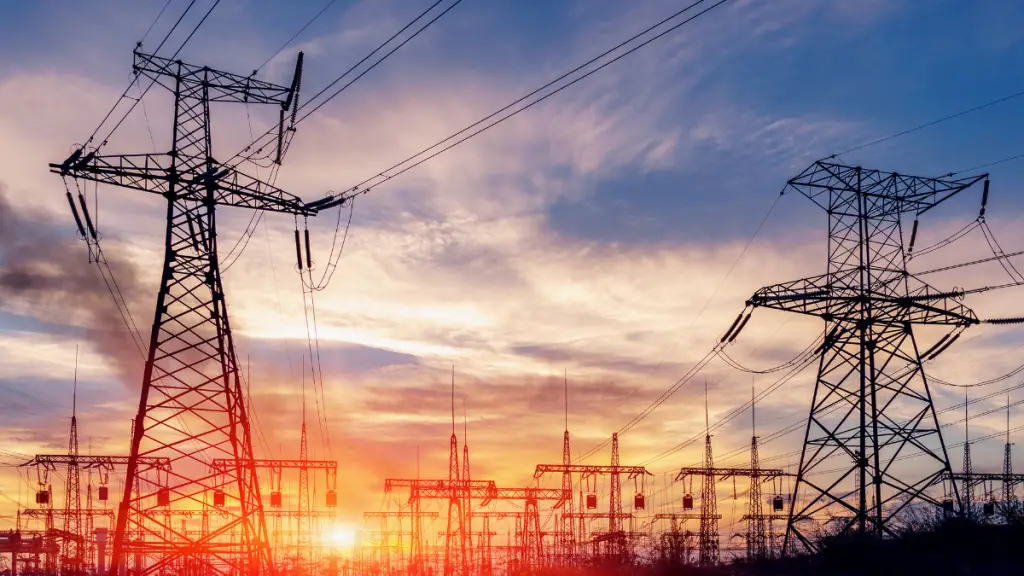“Please Hold Candle Nigerians” was a popular slogan among Nigerians back in the mid-2000s when the Electricity Sector reforms of the country were underway. It is a witty translation of the Acronym PHCN which means Power Holding Company of Nigeria. The slogan was used as a mockery of the power problem in Nigeria, which persists to this day.
64 years after independence, Nigeria still distributes only a meager 4,500 megawatts meant to serve a population of over 200 million. This is despite the country having installed turbines capable of generating 13,000 Megawatts.
Billions of dollars have been invested in this sector over the years. Alas, there is a high chance that if you’re reading this essay from Nigeria, there is a power outage in your location. This frustrating situation made candidate Muhammadu Buhari ask the question “where is the power”?” as a retort to former President Obasanjo who engineered most of the electricity reforms.
Under Obasanjo, many electricity reforms that paved the way for the privatization of the electricity industry were hatched. It saw the establishment of a Nigeria Electricity Regulation Commission (NERC). Which is still serving as the premier electricity regulating agency of the country.
On the back of these reforms, a new Electricity Act (2023) that seeks to get state governments involved in the job of power generation, transmission and distribution was passed by President Tinubu in June 2023.

It has been eight months now since the passing of the Electricity Act 2023 and only five state governments have made efforts to adopt it in their states. This is not surprising given the state government’s reputation for refusing to adopt certain Acts in their states. Especially those that tend to affect their politics such as the Child Rights Act 2003.
Also, it can be understood why some state governments are reluctant to adopt the Electricity Act in their states, because some eight states are on record to have attracted zero foreign investments in their states over the past five years. For such states, getting involved in the electricity sector will be hard as it requires serious funding, most of which may have to be sourced externally from development partners.
Notwithstanding the slow and timid reactions of the state governments towards the Electricity Act 2023, this essay will assess some select states based on their available natural resources for the purpose of generating electricity that is renewable and sustainable for their states.
Here is a brief description of how some Nigerian states can leverage on available natural resources in their territories to provide sustainable electricity under the Electricity Act 2023.
Lagos State
Lagos state is the most populous state in Nigeria and as such, generates the highest amount of waste from human activities. These wastes are convertible to biogas which is used to supply electricity to areas of low demand.
The Lagos state government is already keying into converting its waste to generate electricity and with the passage of the Electricity Act 2023, it is expected that such a project will come into full effect and Lagosians may experience improvements in power supply.
Lagos can also explore the possibility of offshore wind farms along its coastline. Offshore wind projects can complement its solar and gas-based generation, providing additional renewable energy capacity. Additionally, onshore wind turbines can be considered in suitable locations, such as elevated areas or outskirts with consistent wind patterns.
Kastina State
Katsina state has abundance of sunlight and modest wind blow across its terrain. This means that Katsina state has enormous potential into tapping the use of solar energy and wind power to provide electricity for the people of the state.
Katsina state has an ongoing windmill project that is yet to reach completion for more than 18 years. With this new Electricity Act 2023, it is expected that the state government will get involved in seeing the project gets completed. The use of wind to generate power in Katsina state has the potential of greatly transforming the livelihoods of people in the rural areas and open ways for industrialization of villagers to be able to process their farm produce. This will in the long run increase wealth generation and ensure food security is achieved.
Rivers State
Rivers State is rich in natural resources, including oil and gas reserves. It hosts Nigeria’s largest liquefied natural gas (LNG) export terminal. The state also has significant water resources.
Rivers State can capitalize on its hydroelectric potential by expanding existing hydroelectric dams or developing new ones along its rivers. Furthermore, the state can utilize its abundant gas reserves for combined-cycle gas turbine (CCGT) power plants. Additionally, investing in solar energy projects, especially in rural and off-grid areas, can enhance energy access and resilience
Rivers State can explore the feasibility of onshore and offshore wind projects. Onshore wind turbines can be installed in suitable locations, such as hills or ridges, to harness wind energy. Additionally, offshore wind farms along the coastline can further diversify the state’s renewable energy portfolio, alongside its hydroelectric and gas-based generation.
Kano State
Kano, with its large population and industrial activities, experiences high energy demand. The state also has vast agricultural resources, including crop residues and livestock waste.
Kano can harness solar energy through utility-scale solar farms and distributed solar systems. Moreover, the state’s northern location offers potential for wind energy generation, particularly in rural areas. Additionally, biomass energy from agricultural residues and livestock waste can be utilized through biogas plants and biomass power generation facilities to contribute to the state’s energy mix.
Kano can leverage its wind resources by investing in onshore wind farms. These wind farms can be strategically located in areas with favorable wind conditions, such as open plains or elevated terrain. Wind energy can diversify Kano’s energy mix, complementing its solar and biomass-based generation
Plateau State
Plateau State, located in the middle belt region, has diverse topography, including highlands and plateau areas. It experiences moderate to high solar irradiance levels and has rivers suitable for small-scale hydroelectric projects.
Plateau State can harness solar energy through both utility-scale solar farms and decentralized solar solutions. Additionally, the state’s hilly terrain offers potential for small-scale hydroelectric projects, which can provide electricity to rural communities. Furthermore, exploring wind energy potential in suitable locations can diversify the state’s renewable energy portfolio.
Borno State
Similar to Katsina, Maiduguri benefits from ample sunlight, making solar energy a viable option for electricity generation.
Maiduguri also experiences moderate to high wind speeds, particularly during certain seasons, presenting opportunities for wind power generation.
Maiduguri can adopt a diversified approach to electricity generation, combining solar and wind power. The state can invest in both utility-scale solar farms and onshore wind farms to harness its renewable energy potential. Additionally, given the region’s challenges with security and access to conventional fuels, decentralized renewable energy solutions such as solar mini-grids and small-scale wind turbines can provide reliable electricity to rural communities and displaced populations.
Enugu State
Enugu has a historical association with coal mining, although the sector has declined over the years.
Enugu also has favorable solar irradiance levels, particularly in its rural and suburban areas.
Enugu can transition away from coal towards cleaner and more sustainable energy sources. While coal-fired power plants may not align with current environmental goals, the state can explore renewable energy options such as solar and biomass. Investing in solar energy projects, including both large-scale installations and distributed solar systems, can help Enugu meet its energy needs while reducing carbon emissions. Additionally, the state can promote biomass energy generation from agricultural residues and organic waste to further diversify its energy portfolio.
Conclusion
Despite these elaborate resources that are available in the states, it will be wise and advisable for each state government to embark on a thorough assessment of the feasibility of each power project before embarking on them. This should be done by giving specific attention to the ability of the states to generate funds to finance such projects. In cases of loans, the states should ensure they have the necessary capacity to offset such loans in good time without jeopardizing the future of their people.
For the eight states that are unable to attract any foreign investments into their states, this is a wake-up call for them to create an enabling business environment that will attract investments into their states. Not only in the electricity sector but in agriculture and infrastructure as well.
The administration of President Tinubu is already showing green light towards restructuring the country. With this law that gives states the power to make laws for their states on electricity and participate fully in the sector, the impetus for true federalism has been set. State police are expected to come to reality as well. The Bill for the creation of state police has already scaled second reading at the national assembly. States have also been given power to construct rail lines within their states.
The combination of these laws and reforms provide a very positive prospect for the future of Nigerian states to become true and valuable players in the development of Nigeria. It remains to be seen how the states will navigate through these very novel initiatives. Nigerians are watching with open eyes.





